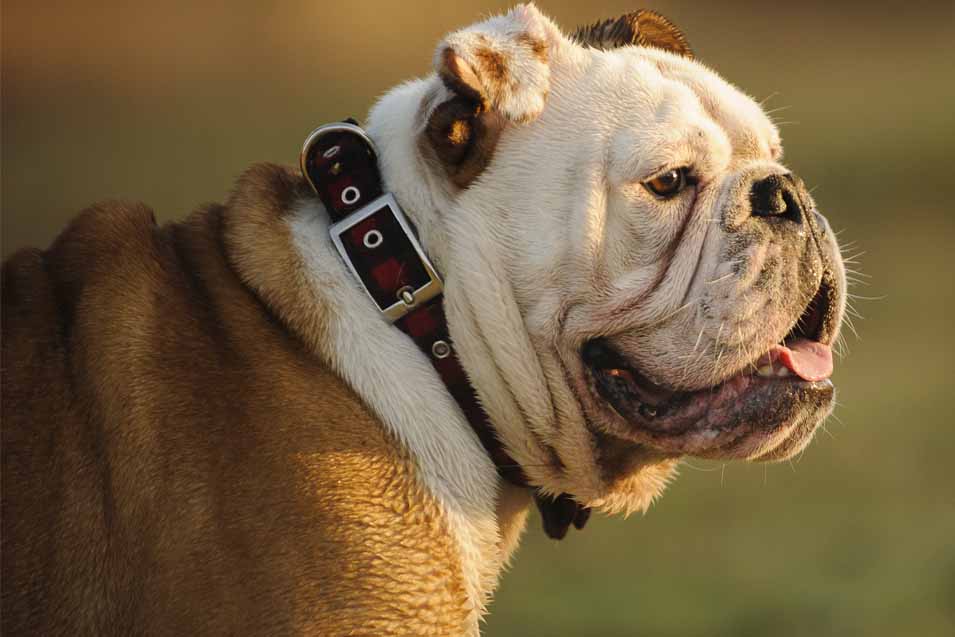Canine irritable bowel syndrome is a condition that is diagnosed by excluding other medical conditions — after all of the other potential causes that have determined the dog’s digestive symptoms have been ruled out. Some of the most common clinical signs of IBS are repeated bouts of constipation or diarrhea, and other clinical signs include vomiting, as well as abdominal pain.
Let’s look at some important information about irritable bowel syndrome in dogs, which should give you some pointers as to whether you should take your canine buddy to the vet and whether he or she might be suffering from this disease.
Causes
There are a variety of suspected causes when it comes to IBS, and they range from changes in the neurochemical regulation of the colonic function to dietary intolerances, stress, or even lack of dietary fiber. An abnormal colonic activity and motility can also be suspected, especially in dogs that have been exhibiting the symptoms for some time.
Clinical Signs
As we have mentioned in the introduction of this article, some of the most common symptoms that dog owners might notice are repeated bouts of either constipation or diarrhea, although they can sometimes alternate. The diarrhea is gooey and mucous and it always happens with the dog feeling the need to ‘go’ very fast. Many dogs have cramps and gas.
Diarrhea bouts can happen after the dog has been constipated for some time. For example, if you were on vacation, got back home, and you took your dog out of boarding, the stress and excitement can be so acute that such an event might happen. It’s also worth noting that these symptoms can also be chronic in medical issues such as whipworm infections.
How is IBS Diagnosed?
IBS is a diagnosis of exclusion, which means that it is the diagnosis at which the vet arrives after almost every other condition for the clinical signs were ruled out. Most GI disorders have many of their symptoms in common, which means that clinically, it is very difficult, if not impossible, to make a clear diagnosis. However, your vet has an array of tests available that can be performed and that can at least rule out other medical conditions.
Some of the diseases that have to be excluded before IBS is diagnosed are tumors of the colon, fungal, bacterial, and other types of infection, intestinal worms or parasites, inflammatory colitis, or an abnormal turning of the intestine.
Many dogs with severe IBS will lose weight as their bodies are incapable of retaining the nutrients that their organs require. Half of your pet’s immune function is located in his or her gastrointestinal tract, which means that a compromised intestine can lead to an overall compromised immune system.
Treatment
Because of the way the disease evolves, the treatment is mostly symptomatic and often revolves around preventing secondary infections. For many patients, tranquilizers or cage rest provide enough rest to control the clinical signs. Anti-diarrhea medications or antispasmodics can also be utilized (such as metronidazole, chlordiazepoxide, loperamide, or Azulfidine). These can be used whenever they are needed, but usually, up to two weeks of treatment is required.
Since IBS is found in many dogs that are stressed, it is a good idea to help your pet as best as possible in this sense. If the source of the stress is unknown and as such, it can’t be eliminated, there are several over-the-counter products that can prove to be helpful. One of them is Alpha Casozepine, a milk protein that has natural calming properties. It’s also available as an oral supplement specifically made for pets and some special diets can also contain it.
There are also diffusers that release pheromones which are naturally secreted by mother dogs to communicate to their puppies that they are safe and sound. Many are available in the form of plug-in wall diffusers, impregnated collars, or room sprays.
Dietary Recommendations
If you and your pet were unfortunate enough to get an IBS diagnosis from the vet, the first piece of advice that we can give you is to sit down and have an honest talk with your veterinarian so that you get specific dietary recommendations. High-quality pet probiotics can help with healing and reseeding the gut with healthy bacteria, which is very important for the overall health of your canine buddy.
If the phase of the disease is acute and your dog can’t seem to stop having bouts of diarrhea, your vet might recommend a bland diet. This means that you aren’t going to feed your dog any grains for a while. You are going to be able to feed him/her cooked ground turkey or canned pumpkin, for example. Cooked sweet potato is another great option. It might be a good idea to eliminate all processed foods at this time, including commercial treats or kibble.
The focus of this type of diet is to create a different type of protein diet that’s well-balanced and that gives your dog’s gut the opportunity to recover fully and for that bacteria to thrive.
Another tip would be to integrate digestive enzymes into your dog’s diet, along with the probiotic that we have mentioned above. Naturally, there are plenty of nutraceuticals or homeopathics that can be quite helpful in reducing IBS symptoms and GI inflammation. If possible, and if the symptoms aren’t extremely severe, talk to your veterinarian and explain him/her that you’d rather avoid corticosteroids even though they do prove their worth under an array of circumstances.
How to Add Fiber to Your Dog’s Diet
Since IBS can cause either diarrhea or constipation, supplemental fiber can solve a bit of both. Some of the best natural sources of fiber that can be given to dogs range from canned 100% natural pumpkin to acacia fiber and psyllium husk powder. After the bland diet period is wrapped up, you can integrate ground dark green leafy veggies into your dog’s diet, too.
Organic apple cider r vinegar (raw & unfiltered) can help with the development of healthy bacteria in your dog’s gut.
Aside from these practical changes, we suggest that you look into several ways that you can reduce your dog’s stress. Sometimes, it can be difficult to tell what factors have triggered the IBS episode, but most often, it’s something related to stress. vinegar (raw & unfiltered) can help with the development of healthy bacteria in your dog’s gut.
Aside from these practical changes, we suggest that you look into several ways that you can reduce your dog’s stress. Sometimes, it can be difficult to tell what factors have triggered the IBS episode, but most often, it’s something related to stress.






